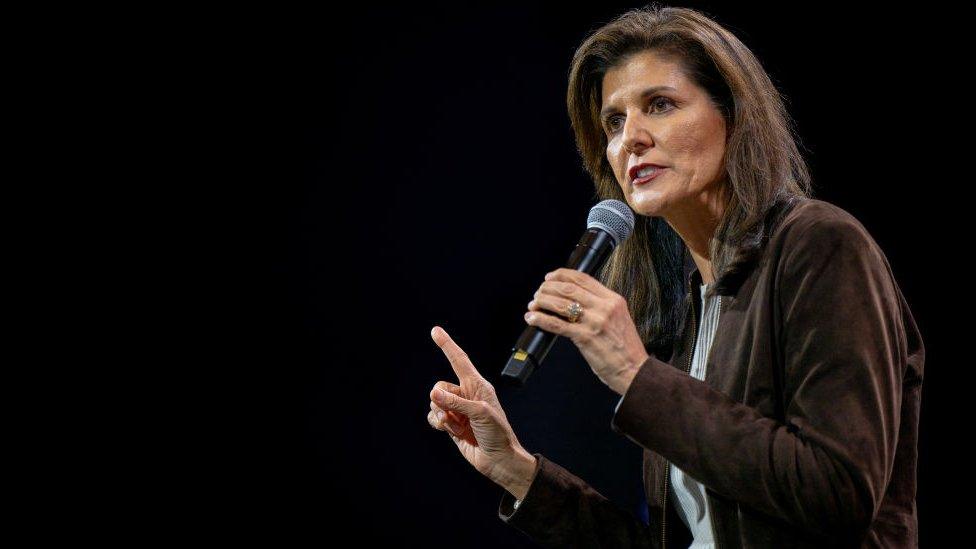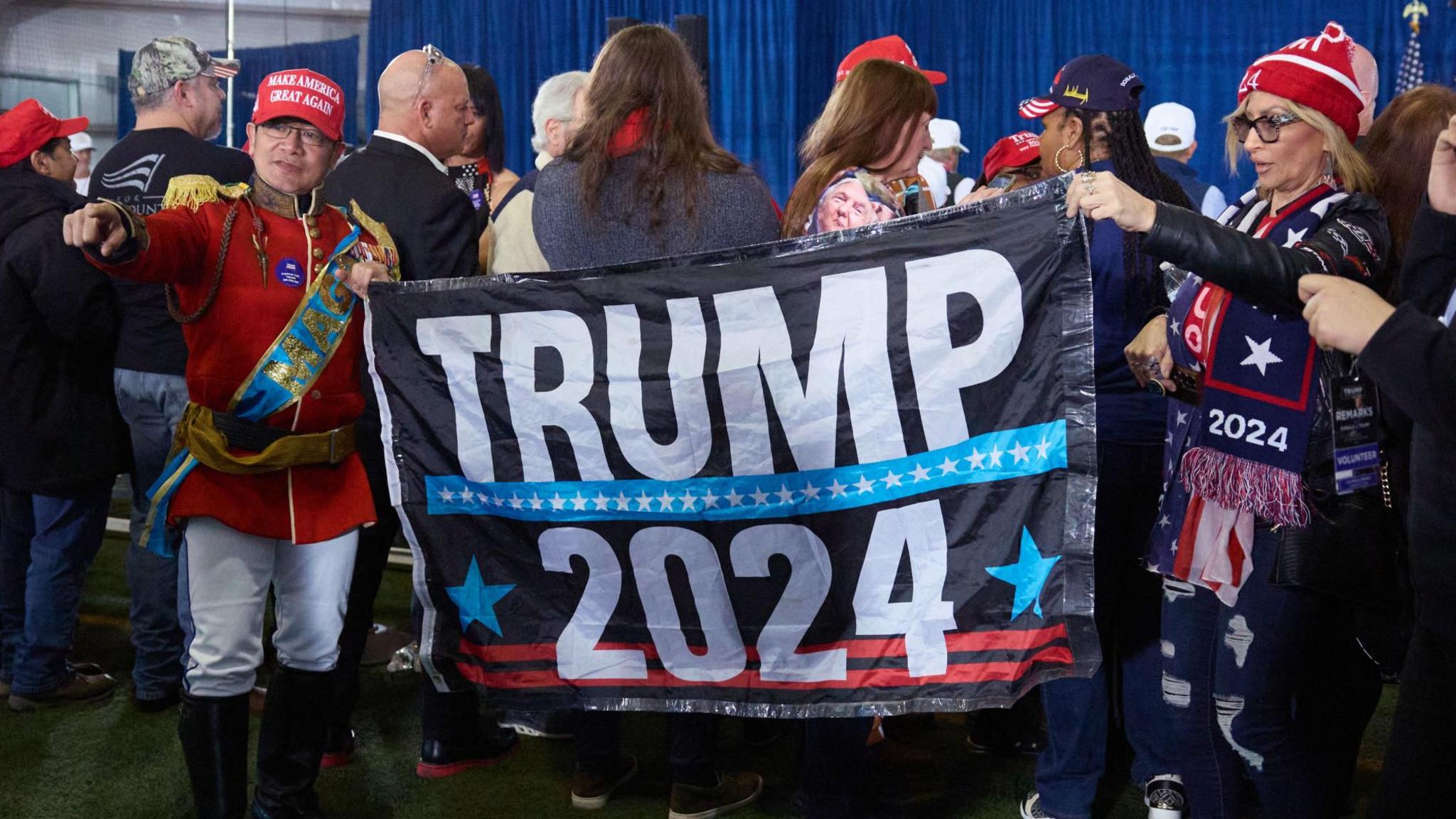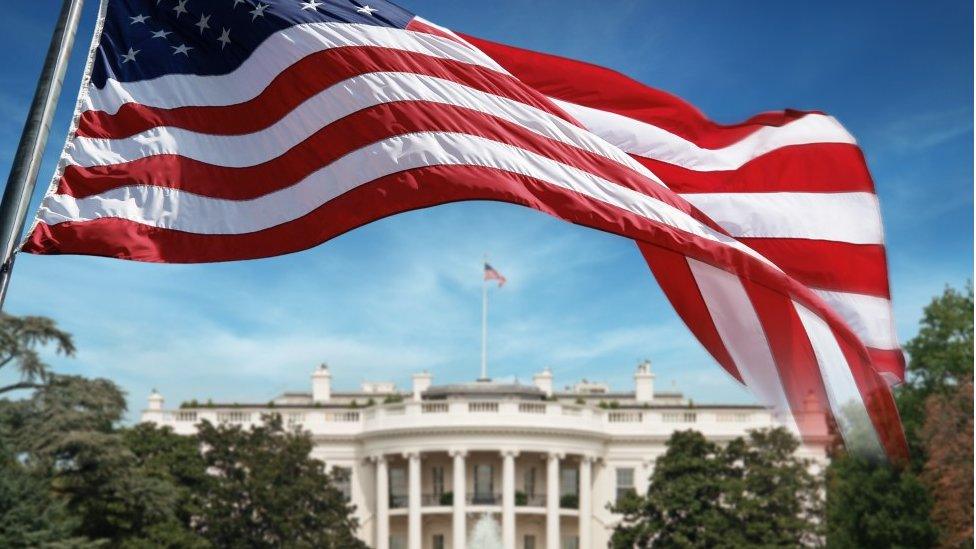Nikki Haley seeks Secret Service protection, citing 'multiple issues'
- Published

Nikki Haley, the last remaining serious challenger to Donald Trump for the Republican nomination, has formally requested Secret Service protection.
The White House hopeful told the Wall Street Journal additional security was needed because of "multiple issues".
"It's not going to stop me from doing what I need to do," she told the paper.
Ms Haley, who trails in opinion polls to Mr Trump, has been urged by the ex-president to exit the race and unify the party against Democrat Joe Biden.
Ms Haley, a former UN ambassador and South Carolina governor, currently uses personal security while campaigning. Local police are also present at events.
"When you do something like this, you get threats," she told reporters on the trail in South Carolina last week.
"It's just the reality."
"That's not going to deter me," she said.
"Does it mean we have to put a few more bodies around this? Yes, that's fine."
Any decision to provide her with a Secret Service security detail would be made by the US secretary of homeland security, who would first confer with a joint congressional committee. The BBC has contacted the homeland security department for comment.
Ms Haley's home was recently targeted by a swatting hoax, in which a call to emergency services is made by someone trying to trigger a response from a heavily armed police squad. She said that she was not home at the time, but her elderly parents were there with a caregiver.
Protesters have shown up at Ms Haley's campaign events to criticise her support for Israel and Ukraine.
Secret Service protection is granted to "major" candidates under federal law, usually when they look certain to become their party's nominee.
As a former US president, Mr Trump gets Secret Service protection for life.
Independent candidate Robert F Kennedy Jr has repeatedly asked for Secret Service protection, but said he was denied.
His uncle, President John F Kennedy, and father, Senator Robert Kennedy, were both killed by assassins while in office.
Since announcing his candidacy, he has faced at least two significant threats, including an armed man posing as a member of his security detail at a campaign event.
Barack Obama was granted Secret Service protection in May 2007, unusually early in that election cycle, amid safety concerns as he campaigned to be the nation's first black president.
Related topics
- Published5 February 2024

- Published31 January 2024
